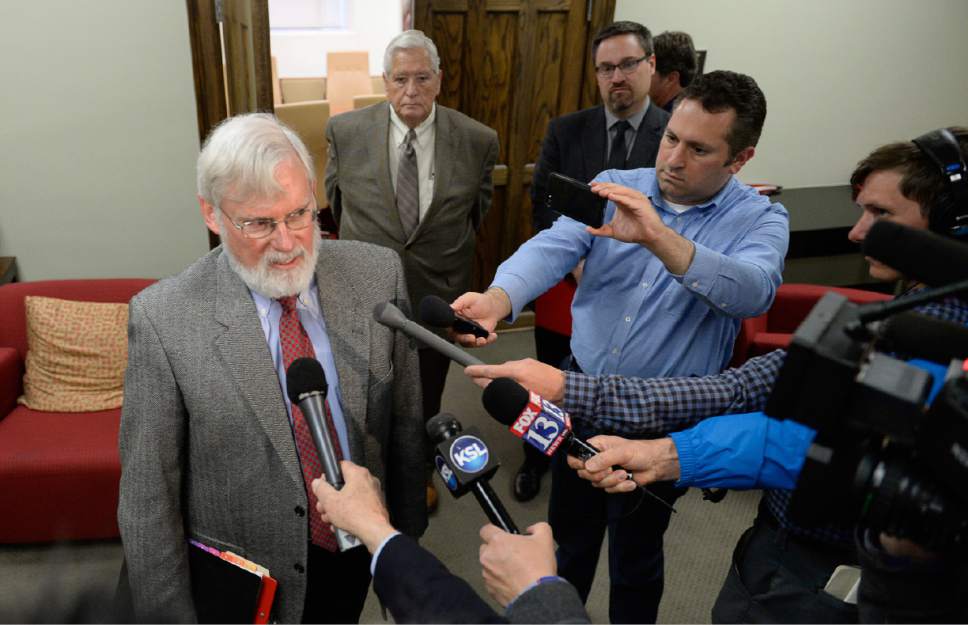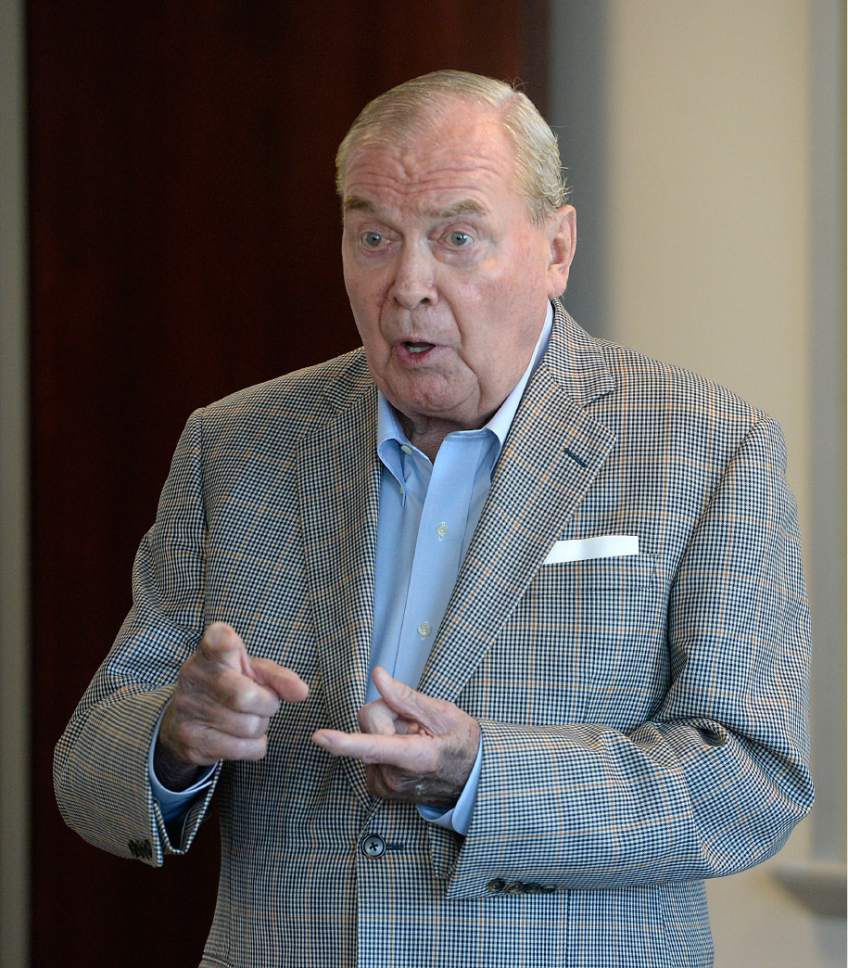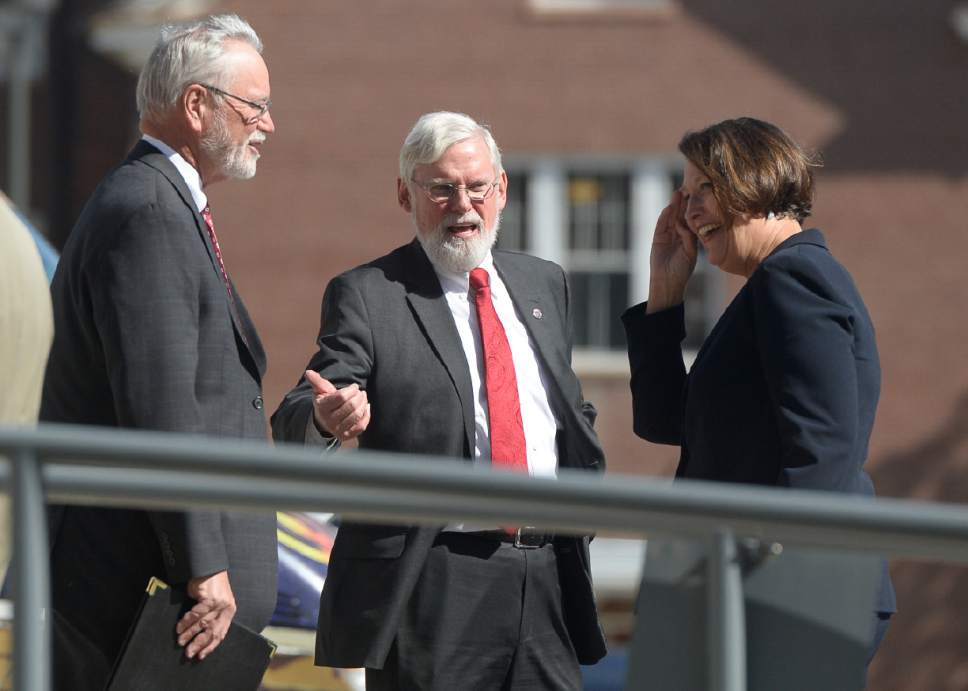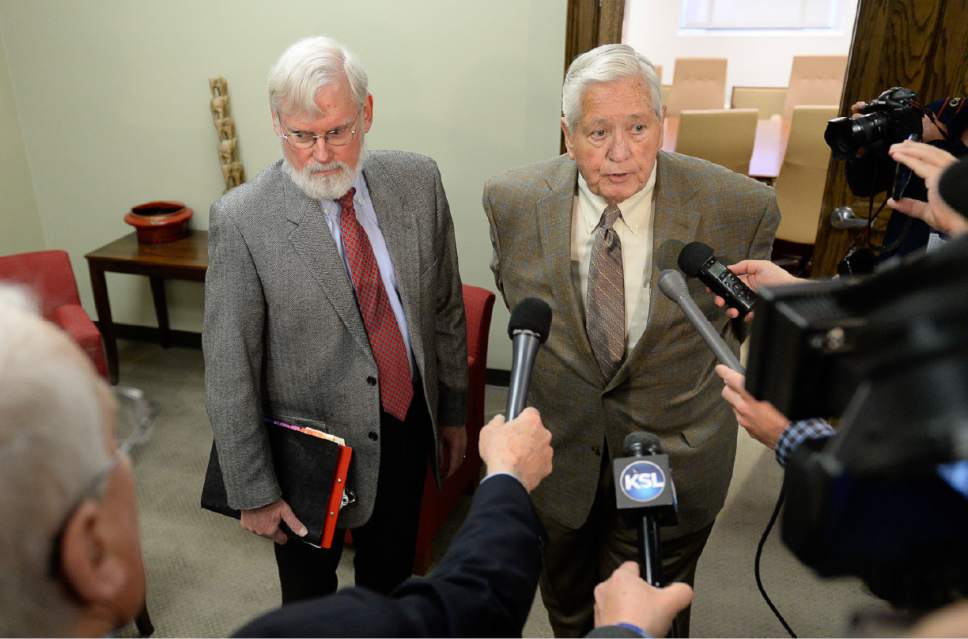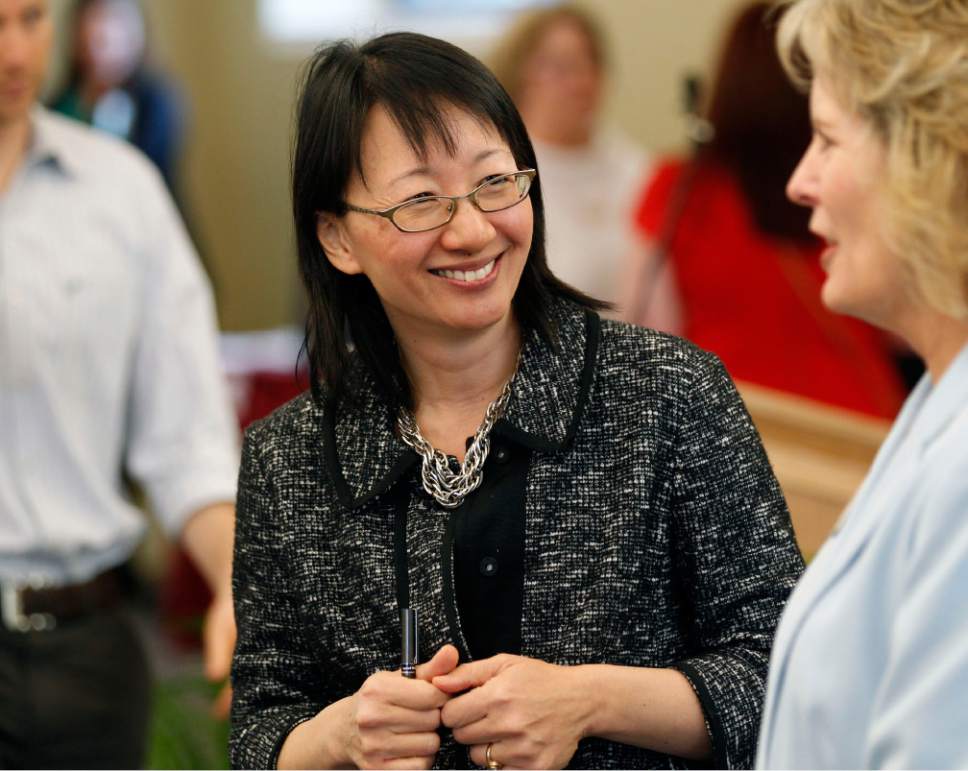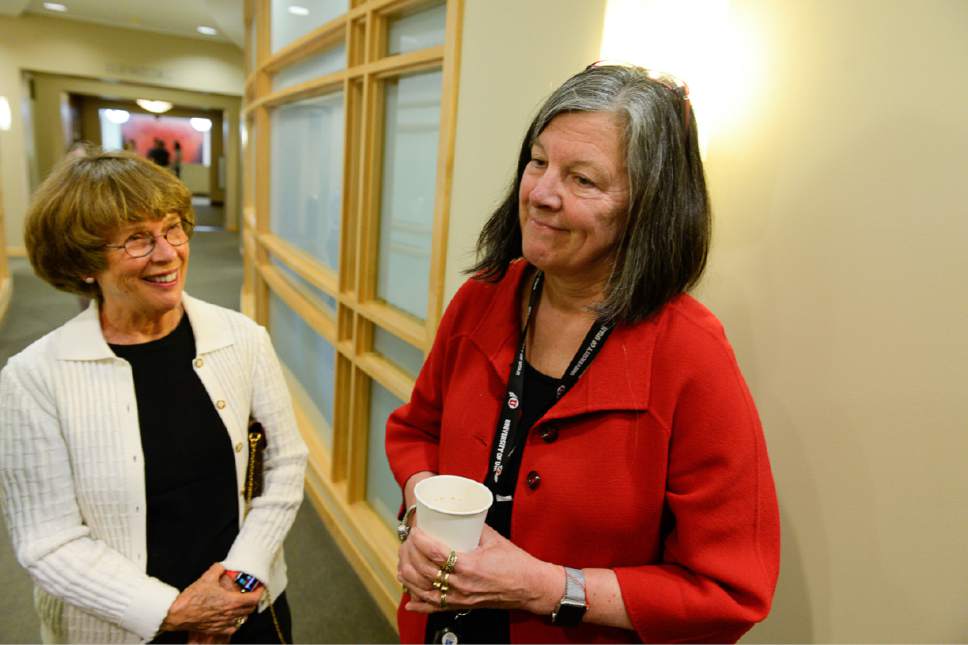This is an archived article that was published on sltrib.com in 2017, and information in the article may be outdated. It is provided only for personal research purposes and may not be reprinted.
Weeks before a divisive controversy over the Huntsman Cancer Institute erupted in April, the Huntsman Cancer Foundation sought more revenue from the University of Utah and enhanced powers for institute CEO Mary Beckerle, according to letters and documents.
In March, the foundation drafted what CEO Peter Huntsman calls a "wish list" — a memorandum of understanding that reflected verbal agreements reached over months of discussions with U. President David Pershing, Huntsman said.
Pershing had generally agreed that the U. would temporarily share more revenue with the institute, to make up for money the school owed the cancer center, Huntsman said. Pershing also had agreed to have institute Director Mary Beckerle report to him, Huntsman said.
The foundation had committed to providing $120 million in new funding for the institute over the next eight years, adding to $130 million already promised. "Those were concepts that had been agreed to," Huntsman said.
But the March 2 document also outlines a dramatic shift in power, giving the institute's CEO "authority over the full spectrum of the cancer efforts and programs at the university," including academics, research and care provided at the institute, Huntsman Cancer Hospital and its clinics and affiliated sites. The institute's CEO also would be allowed to invest financial resources to grow the U.'s cancer program and to recruit "critical faculty," the document states.
That new structure — based on Ohio State University's comprehensive cancer center, where the director reports to the university president — was still being discussed, Huntsman said. "Whenever you give a first draft, whoever holds the pen usually puts in a wish list," he said.
Details of the March 2 memo were first reported Tuesday by Deseret News, which said the document "set the stage for the power struggle that ensued over the next six weeks."
But Huntsman said no one has indicated that the document was the cause or among the reasons why U. Health Care CEO Vivian Lee fired Beckerle via email on April 17, sparking protests from faculty and the Huntsman family. After Pershing reinstated Beckerle, Lee resigned from her three leadership roles in health sciences and Pershing announced he will step down as president when his successor is selected.
"I had negotiated in good faith with President Pershing over a multimonth period and the verbal agreements got to the point where you memorialize them in writing," Huntsman said. "Dr. Lee was in some of the earlier meetings. Mostly the last two or three meetings were face to face with Dr. Pershing and me."
The senior leaders of the U.'s board of trustees had supported Lee's firing of Beckerle. But Chairman H. David Burton said he saw the March 2 document for the first time Tuesday when he read the Deseret News.
"There were negotiations that had been going on on this document for, as I understand it, some number of months, going back into the prior year," Burton said.
University spokesman Chris Nelson said negotiations on a new agreement began months ago and are ongoing between the Huntsman Cancer Foundation and university administrators. Pershing was unavailable for comment, Nelson said, and Lee and Beckerle have repeatedly declined to participate in interviews. In a change made during her reinstatement, Beckerle now reports to Pershing.
Memorandums of understanding have governed the relationships among the U., the institute and the cancer foundation since the cancer center was founded in 1995. Seven past agreements, released by the U. on Tuesday, have dictated issues from the design of the cancer hospital to who interacts with donors.
Under the current memorandum, signed in December 2014 and not scheduled to expire for 10 years, the U. pays for the operational expenses of the institute — a commitment that cannot drop below $13.5 million.
That funding was previously the responsibility of the foundation, which now supports "cancer research and cancer programs at the university, with a renewed focus on the construction of new buildings and new program development." A new children's cancer wing of the institute is slated to open next month.
Huntsman said the March 2 document — signed by him and his father, Jon Huntsman Sr., but not by Pershing — aims to address revenue-sharing disagreements that have been "festering." The foundation "believes that the University of Utah has not fulfilled its funding obligations that were agreed to some years ago," he said.
Currently, Huntsman Cancer Hospital keeps 25 percent of its profits. It sends another 25 percent to the university's health sciences department, and the remaining 50 percent goes to the Huntsman Cancer Institute.
Under the new proposal, the former health sciences share would be sent to the institute for three years. Starting in 2020, it would be sent to university hospitals and clinics.
"After three years, that will all be cleared up and bygones are bygones," Huntsman said.
Under the three-year plan, the document states, the hospital will net about $64 million each year, keeping $16 million and sending $48 million to the institute.
Huntsman said Pershing had not agreed to Beckerle being able to hire and fire, but that and other points were under discussion. "We had never said this was a deal-stopper," Huntsman said.
Cancer-related work in other areas of the university should be at least coordinated through the institute, Huntsman said.
Nelson said the institute's current structure requires faculty decisions to go through university channels, and that preserving that system is "the one sacred thing" in academia.
Twitter: @bjaminwood, @alexdstuckey
Editor's note: Paul Huntsman, the son of Jon Huntsman Sr. and brother of Peter Huntsman, is the owner and publisher of The Salt Lake Tribune


